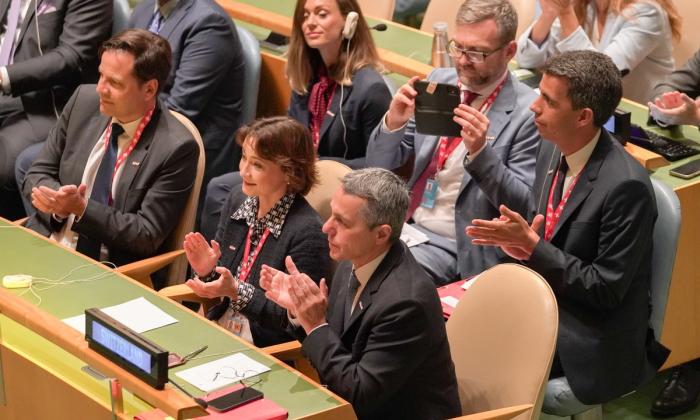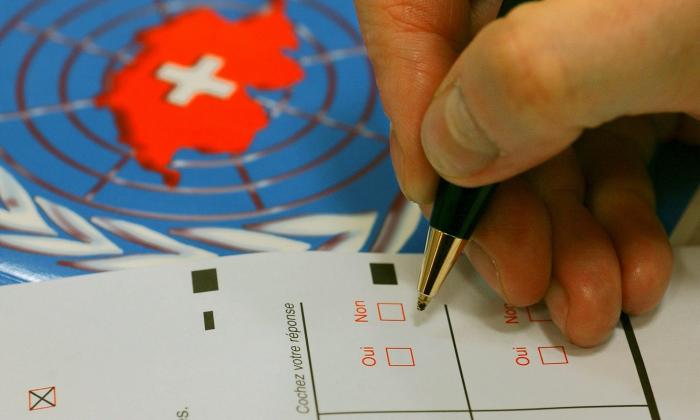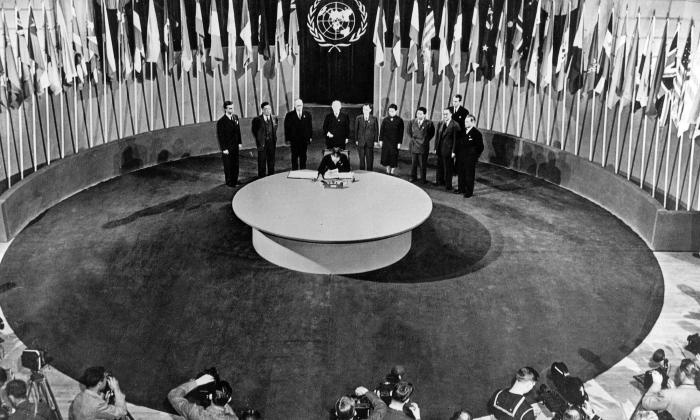Timeline
Switzerland in the United Nations
2023-2024
Switzerland was a non-permanent member of the UN Security Council for two years.

2022
Switzerland was elected by the UN General Assembly on 9 June 2022, with 187 votes out of 190, to take a seat on the Security Council in 2023-2024.

2015
Switzerland is a driving force behind the 2030 Agenda and its 17 Sustainable Development Goals, and is committed to achieve the SDGs by 2030.
2011
For the first time, Switzerland announces that it seeks a non-permanent seat on the UN Security Council for the period 2023-2024.
2010-2011
Joseph Deiss, former Swiss President, presides over the UN General Assembly.
2009
In line with Swiss commitment to peace and security, the Permanent Representative of Switzerland in New York takes over the role of chair of the Burundi Configuration of the UN Peacebuilding Commission.
2006
Switzerland initiates the creation of the Human Rights Council.
2002
Switzerland joins the United Nations following a popular referendum. A majority of 54.6% of the population endorsed Switzerland’s membership. To date, Switzerland is the only country to have joined the UN as the result of a popular vote.

Keystone
2000
Following the adoption of UN Security Council Resolution 1325 on women, peace and security, Switzerland is one of the first countries to adopt a national action plan in order to strengthen women’s involvement in peace processes.
1990
Deployment of Swiss military observers supporting UN peace operations, among others in the Middle East, the Democratic Republic of Congo, South Sudan and Mali.

SWISSINT
1953
Switzerland sends 146 armed military personnel to Korea to monitor the armistice agreement. The Neutral Nations Supervisory Commission in Korea (NNSC) is still active today in the demilitarized zone.
1948
Creation of the World Health Organization. Switzerland is among the founding members and has since served twice on its Executive Board.
1948
Switzerland was the first state to gain the status of permanent observer of the UN and followed activities closely, with the ability to participate in meetings of the General Assembly, the Security Council and other public meetings of the UN committees.
1946
Dissolution of the League of Nations and creation of the United Nations. Geneva hosts the European headquarters of the UN.
1945
The Charter of the United Nations is signed by 50 states representatives, with the aim of establishing a peaceful world order and promoting social progress.

SWISSINT
1919
Establishment of the League of Nations, intended to secure international peace and security. Geneva hosts the headquarters of the organization. Switzerland joins the League in 1920 following a popular referendum.


